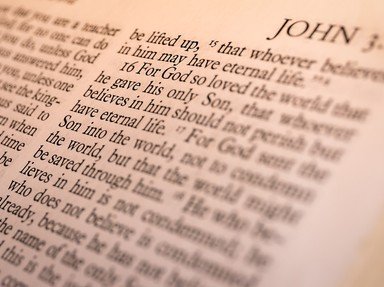Quiz Answer Key and Fun Facts
1. Historically, the apostle John has been regarded as the author of this letter. In what way does the writer, in his introduction, seek to reinforce the truth of his message?
2. What is the message that John claims to have heard from Jesus and is now proclaiming to his readers?
3. John says that some people deceive themselves - the truth is not in them - when they say that they are living without what?
4. At the beginning of chapter 2, John encourages his readers, saying that they have Jesus to help them in their fight with sin. Which of these is NOT one of the phrases that he uses to describe this work of Jesus?
5. People are torn, according to John, between the things of the world and the things of God. He implores his readers not to love the world or anything in it. Which word completes the following quote?
"The world and its desires pass away, but the man who does the will of God lives _______." (1 John 2 v. 17)
6. In chapter 2, John addresses three groups of people, differentiated by age. Which of these is NOT one of those groups?
7. Like many in the early church, John believed that the end times and second coming were near. John refers to which happening in order to support this belief?
8. "Those who obey his commands live in him, and he in them." (1 John 3 v. 24)
What does John offer as evidence that Jesus lives in Christians?
9. Echoing many of the New Testament writers, John warns that his readers should not be surprised if the world hates them. To which Old Testament story does he refer, claiming that it shows an evil man killing his righteous brother?
10. At the beginning of chapter 4, what does John say it is necessary to do when anyone claims spiritual revelation?
Source: Author
glendathecat
This quiz was reviewed by FunTrivia editor
CellarDoor before going online.
Any errors found in FunTrivia content are routinely corrected through our feedback system.

